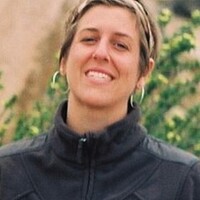Neil deGrasse Tyson to host new 'Cosmos,' 34 years after Carl Sagan's original
"The good thing about science is that it's true whether or not you believe it," the renowned science educator and astrophysicist Neil deGrasse Tyson once told Bill Maher.
This Sunday, Dr. Tyson will take to Fox TV to make the wonders of the physical universe all the more believable, with a reboot of Carl Sagan's beloved 1980 PBS series, "Cosmos: A Personal Voyage." After a 34-year interval packed with scientific discoveries – planets outside our solar system, full genome sequencing, the refinement of the Standard Model of particle physics – the sequel, called "Cosmos: A Spacetime Odyssey" will again explore "the saga of how we discovered the laws of nature and found our coordinates in space and time," according to a press release.
"The new 'Cosmos' is about opening the door to the widest possible audience, to entertain them, to uplift them, to make them feel the great, the awesome power of the scientific perspective," Dr. Sagan's widow Ann Druyan, a writer, producer, and director for the new show, told Mother Nature News. "When Carl Sagan was alive, we weren't trying to preach to the converted. We wanted to evoke in people, who might have even had hostility to science, a sense of wonder."
The new series arrives just weeks after Bill Nye, the TV science educator, made a highly publicized trip to Kentucky's Creation Museum to debate its founder, Ken Ham, on whether or not the theory of creation is a viable model for explaining human origins.
But Tyson, who gleefully uses Twitter to debunk sins against astronomy as they crop up in Hollywood films (the Oscar-sweeping 'Gravity' included!), has redirected many an interviewer's efforts to engage him in polarizing debates about religion.
"As an educator, I try to get people to be fundamentally curious and to question ideas that they might have or that are shared by others," he said in a recent interview with Huffington Post. "In that state of mind, they have earned a kind of inoculation against the fuzzy thinking of these weird ideas floating around out there. So rather than correct the weird ideas, I would rather them to know how to think in the first place. Then they can correct the weird idea themselves. I don't just tell them no. That's pontifical."
That is not to say the show will avoid the intersections of science with politics. "We tell the stories of scientists in different cultures and different eras whose life work was fought against by the culture or the governments that controlled their lives or by social mores that interfered with their exploration of the truth," he told HuffPost.
"Some gave their lives for having found truth and in that world you learn that there are science martyrs. They're people who cared more about the truth than their own relationship to their homeland."
Tonight at 8pm, FOX will host a live interactive Q&A session with Tyson, Druyan, and co-producer Seth McFarlane, which will be screened for free at theaters across the country.
All 13 of the original episodes, which for ten years remained the most widely watched series in PBS history, will be rebroadcast this weekend. The National Geographic Channel will run a marathon from 12pm to 6pm on Saturday, March 8, and from 12pm to 7pm Sunday. That will leave devotees enough time to tuck in dinner before the new show airs at 9pm.






